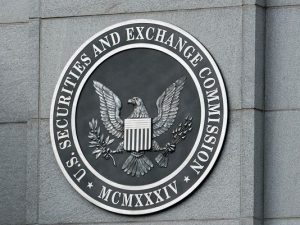 This week, the Securities and Exchange Commission (“SEC”) announced that it issued an SEC whistleblower award of $22 million to an anonymous company insider who provided key information that resulted in Monsanto Company, a St. Louis-based agribusiness, agreeing to pay an $80 million penalty and retain an independent compliance consultant to settle charges that it violated accounting rules and misstated company earnings as they pertained to its flagship product Roundup, a popular weed-killer.
This week, the Securities and Exchange Commission (“SEC”) announced that it issued an SEC whistleblower award of $22 million to an anonymous company insider who provided key information that resulted in Monsanto Company, a St. Louis-based agribusiness, agreeing to pay an $80 million penalty and retain an independent compliance consultant to settle charges that it violated accounting rules and misstated company earnings as they pertained to its flagship product Roundup, a popular weed-killer.
The award is the second-largest whistleblower award in the program’s history. The largest award came in September 2014, when the SEC awarded more than $30 million to a whistleblower for providing information that led to a successful SEC enforcement action. Factoring in the Monsanto whistleblower award, 33 whistleblowers have now collected more than $107 million since the SEC launched the program in 2011.
The SEC’s Whistleblower Program was established under a provision of the Dodd-Frank Act. Whistleblowers who provide unique and useful information to the SEC can be awarded 10% to 30% of the SEC’s recovery when that recovery exceeds $1 million.
The SEC did not reveal the whistleblower’s identity, which can remain confidential under the law, but Jane Norberg, Acting Chief of the SEC’s Office of the Whistleblower, said that “[w]ithout this whistleblower’s courage, information, and assistance, it would have been extremely difficult for law enforcement to discover this securities fraud on its own.”
Norberg also reminded company insiders that they are in “unique positions behind-the-scenes to unravel complex or deeply buried wrongdoing” like the well-hidden fraud at Monsanto, where earnings were misstated for 3 years without detection as the company reported substantial amounts of revenue resulting from sales incentivized by rebate programs while simultaneously failing to report the costs of those rebate programs.
This SEC whistleblower award further supports SEC Chair Mary Jo White’s position that the:
SEC’s whistleblower program has proven to be a game changer for the agency in its short time of existence, providing a source of valuable information to the SEC to further its mission of protecting investors while providing whistleblowers with protections and financial rewards.


